Filter by
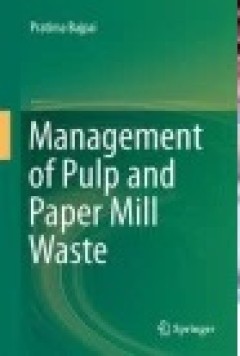
Management of Pulp and Paper Mill Waste
Pulp and paper mill industries are always associated with the disposal problem of highly contaminated sludge or bio-solids. The development of innovative systems to maximize recovery of useful materials and/or energy in a sustainable way has become necessary. The management of wastes, in particular of industrial waste, in an economically and environmentally acceptable manner is one of the…
- Edition
- -
- ISBN/ISSN
- 978-3-319-11788-1
- Collation
- -
- Series Title
- -
- Call Number
- -
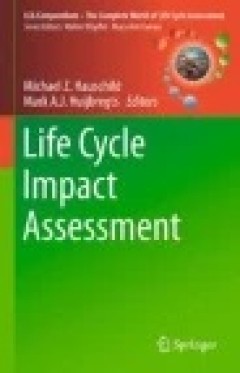
Life Cycle Impact Assessment
This book offers a detailed presentation of the principles and practice of life cycle impact assessment. As a volume of the LCA compendium, the book is structured according to the LCIA framework developed by the International Organisation for Standardisation (ISO)passing through the phases of definition or selection of impact categories, category indicators and characterisation models (Classifi…
- Edition
- -
- ISBN/ISSN
- 978-94-017-9744-3
- Collation
- -
- Series Title
- -
- Call Number
- -
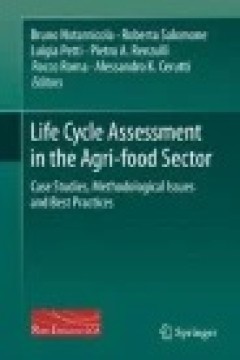
Life Cycle Assessment in the Agri-food Sector: Case Studies, Methodological I…
The book presents an overview of the International practices and state-of-the-art of LCA studies in the agri-food sector, both in terms of adopted methodologies and application to particular products; the final purpose is to characterise and put order within the methodological issues connected to some important agri-food products (wine, olive oil, cereals and derived products, meat and fruit) a…
- Edition
- -
- ISBN/ISSN
- 978-3-319-11940-3
- Collation
- -
- Series Title
- -
- Call Number
- -
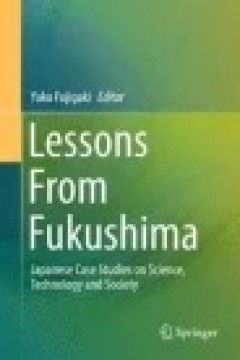
Lessons From Fukushima: Japanese Case Studies on Science, Technology and Society
This book is about the consequences of the Fukushima disaster in light of their technological, societal, political, cultural and environmental origins. The magnitude of the nuclear accident is investigated in this book in the contexts of politics, economy, and society. The authors scrutinize the relationships between science, technology and society leading to this accident. Further, the authors…
- Edition
- -
- ISBN/ISSN
- 978-3-319-15353-7
- Collation
- -
- Series Title
- -
- Call Number
- -
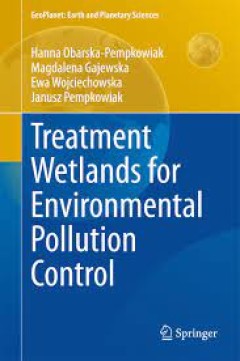
Treatment Wetlands for Environmental Pollution Control
The aim of this book is to present an overview of the state of the art with regard to the function, application and design of TWSs in order to better protect surface water from contamination. Accordingly, it also presents applications of constructed wetlands with regard to climatic and cultural aspects. The use of artificial and natural treatment wetland systems (TWSs) for wastewater treatment…
- Edition
- 1
- ISBN/ISSN
- 978-3-319-13793-3
- Collation
- XIII, 169
- Series Title
- GeoPlanet: Earth and Planetary Sciences
- Call Number
- -
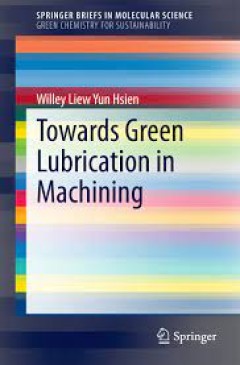
Towards Green Lubrication in Machining
The book gives an overview of environmental friendly gaseous and vapour, refrigerated compressed gas, solid lubricant, mist lubrication, minimum quantity lubrication (MQL) and vegetable oils that can be used as lubricants and additives in industrial machining applications. This book introduces vegetable oils as viable and good alternative resources because of their environmental friendly, non-t…
- Edition
- 1
- ISBN/ISSN
- 978-981-287-265-4
- Collation
- XIII, 46
- Series Title
- SpringerBriefs in Molecular Science
- Call Number
- -
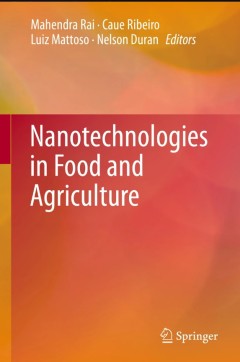
Nanotechnologies in Food and Agriculture
This book presents a comprehensive overview of new and emerging nanotechnologies. It includes aspects of nanoparticle monitoring, toxicity, and public perception, and covers applications that address both crop growing and treatment of agricultural wastewater. Topics include nanoagrochemicals (nanofertilizers, -pesticides, -herbicides), nanobiosensors, and nanotechnologies for food processing, p…
- Edition
- 1
- ISBN/ISSN
- 978-3-319-14023-0
- Collation
- XV, 347
- Series Title
- -
- Call Number
- -
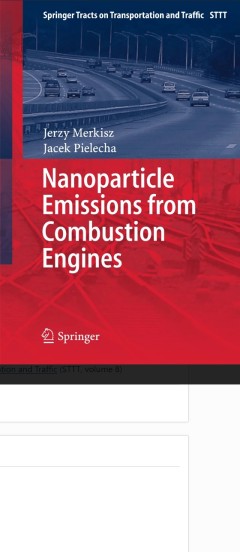
Nanoparticle Emissions From Combustion Engines
This book focuses on particulate matter emissions produced by vehicles with combustion engines. It describes the physicochemical properties of the particulate matter, the mechanisms of its formation and its environmental impacts (including those on human beings). It discusses methods for measuring particulate mass and number, including the state-of-the-art in Portable Emission Measurement Syste…
- Edition
- 1
- ISBN/ISSN
- 2194-8119
- Collation
- X, 139
- Series Title
- Springer Tracts on Transportation and Traffic
- Call Number
- -
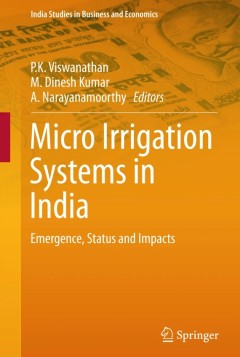
Micro Irrigation Systems in India
This book takes stock of micro irrigation systems (MIS), the technological intervention in India’s agricultural and water management sectors, over the past couple of decades. Based on empirical research from the major agriculturally dynamic states, viz., Gujarat, Rajasthan, Maharashtra, Tamil Nadu, Andhra Pradesh and Karnataka, the book provides a nuanced understanding and objective assessmen…
- Edition
- -
- ISBN/ISSN
- 978-981-10-0346-2
- Collation
- XIV, 178
- Series Title
- India Studies in Business and Economics
- Call Number
- -
 Computer Science, Information & General Works
Computer Science, Information & General Works  Philosophy & Psychology
Philosophy & Psychology  Religion
Religion  Social Sciences
Social Sciences  Language
Language  Pure Science
Pure Science  Applied Sciences
Applied Sciences  Art & Recreation
Art & Recreation  Literature
Literature  History & Geography
History & Geography